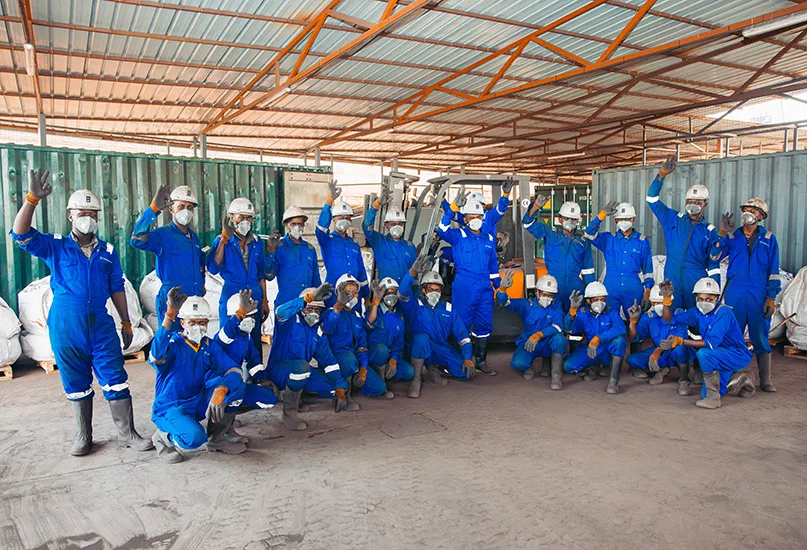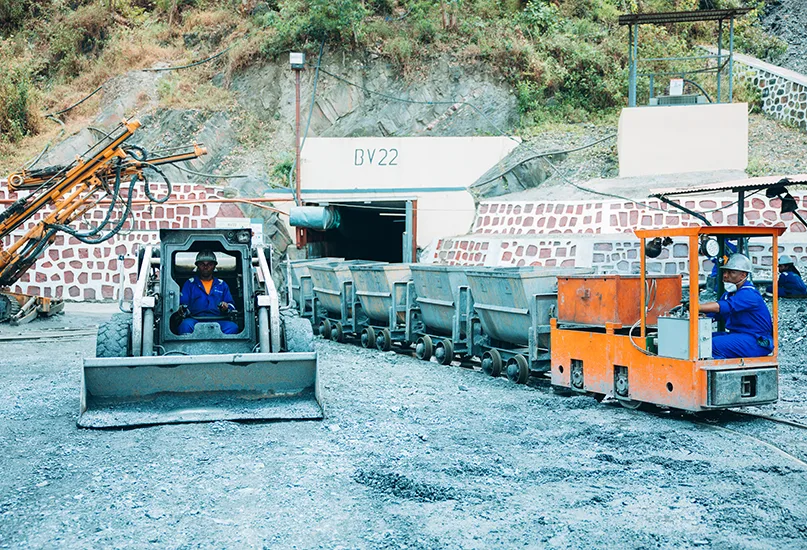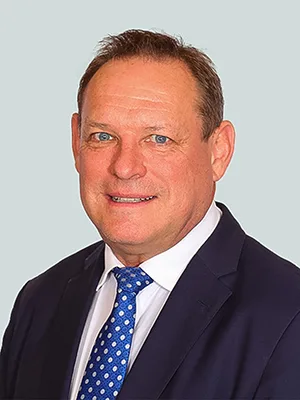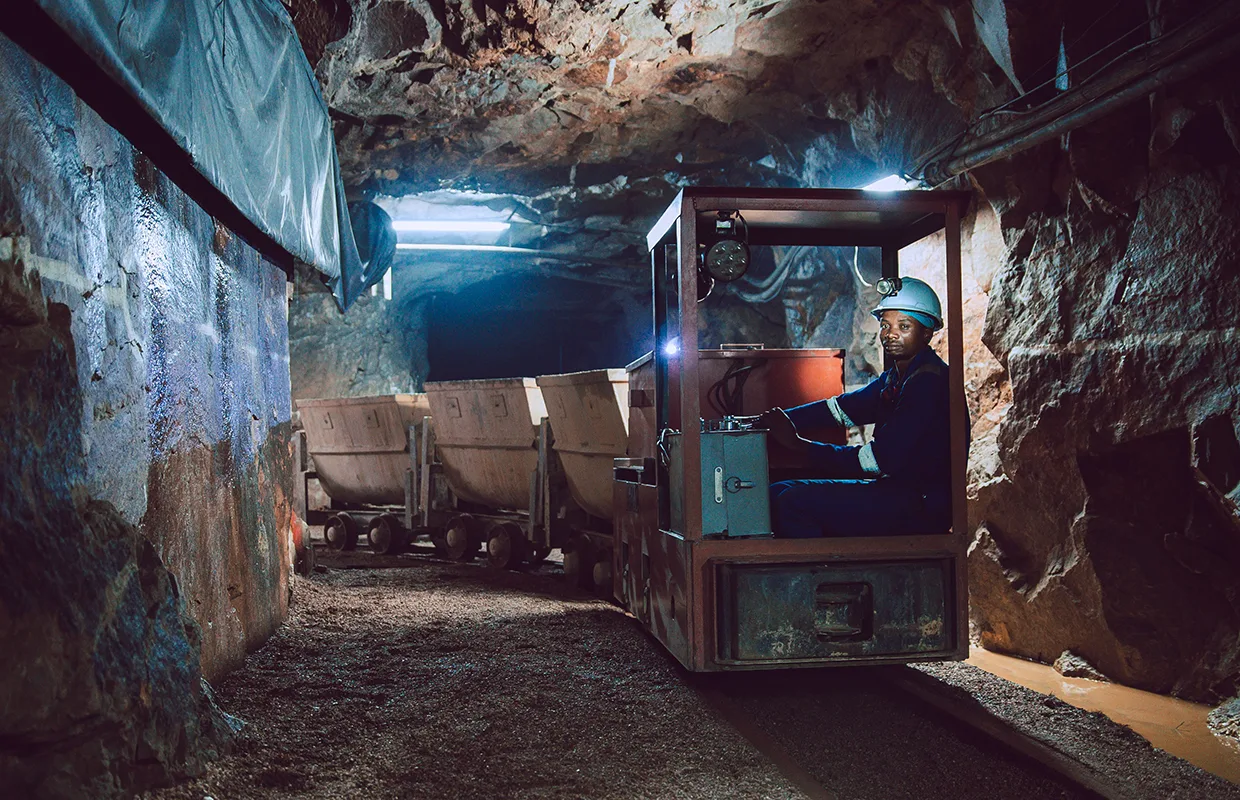An industry leader in mining tin, tungsten, and tantalum in Rwanda, Trinity Metals is on a mission to produce high-quality metals through responsible, eco-conscious operations and business practices. We speak to Peter Geleta, CEO, to learn more about the company’s conception and grand plans for the future.
ENABLING A BETTER FUTURE
With a vision to make a difference in the world by responsibly and reliably sourcing essential metals for technology, Trinity Metals (Trinity) is an unparalleled leader in mining.
Producing tin, tungsten, and tantalum, the company proudly employs eco-conscious and ethical practices in every area of its business operations, setting the bar high by operating according to international industry standards and with continuous improvement in mind.
Trinity was officially formed in May 2022 when the shareholders of Trinity Musha Mines Ltd., Trinity Nyakabingo Mine Ltd., and Rutongo Mines Ltd. joined forces.
This three-way alliance builds upon each company’s strengths and achieves operational synergies to ensure Trinity remains a leading mining organisation.
“Over the past three years, approximately USD$35 million has been invested in mechanising, modernising, and professionalising our operations, and we have seen very good results,” introduces Peter Geleta, CEO.
“Although we consider ourselves a company still in development, we already have three operating mines that generate positive cash flow, all of which have significant opportunities to scale up.”
Specifically, in June 2024, Trinity became the first operational mining company in Africa to receive US International Development Finance Corporation (DFC) Technical Assistance funding of USD$3.85 million, further showcasing the company’s incredible progress since its inception.
Trinity’s three mines include the Nyakabingo Mine, the Rutongo Mine, and the Musha Mine.
The Nyakabingo Mine is the largest tungsten producer in Africa and the fourth largest globally, producing 110 tonnes (t) of wolfram concentrate monthly, with plans to increase to 200t in the next three to five years.
Meanwhile, as the largest tin producer in Rwanda, Rutongo Mine produces 65 to70t of cassiterite concentrate monthly, whilst Musha Mine produces 30-40t of cassiterite monthly as the second largest tin producer in the country.
“There are plans to expand production on all three mines alongside studies already underway for the design and construction of mineral processing plants at each location,” details Geleta.
Operating in a stable, safe, and investor-friendly country with strong visionary leadership, Trinity’s future growth opportunities are not to be overlooked as all these minerals are critical for future technology and energy demand.
“Two of Trinity’s core values are ‘We Empower and Impact’ and ‘We Hold Ourselves Accountable’ and we live by these”
Peter Geleta, CEO, Trinity Metals

CHANGING MINING’S REPUTATION
Currently, Geleta notes that the mining industry has never been more exciting, especially given the focus on critical minerals in Africa.
“China has long dominated the market when it comes to the supply of critical minerals, but there is now renewed focus from the US and Europe to secure a stable supply. As such, the African continent has a major opportunity to attract international investment for the exploration, expansion, and development of new mines,” expands Geleta.
On a mission to produce high-quality metals through responsible, eco-conscious operations and business practices, Trinity has been able to expand its services and offerings even further thanks to this evolving market, cementing its position as an industry leader for decades to come.
Additionally, although a private company, Trinity’s business practices align with listed company standards, alongside being in the process of implementing an ISO standard and (SHEC) management system.
“The company also has a very strong safety culture. Our lost time injury frequency rate is comparable with the top mining companies globally,” insights Geleta.
The service provider for traceability and due diligence compliance for Trinity’s three mines is RCS Global, whose Better Mining Programme for upstream traceability assurance has been approved by the Responsible Minerals Initiative (RMI).
Working to ensure the ongoing, proactive, and reactive process is carried out properly throughout the mineral value chain, Trinity respects human rights and does not contribute to conflict – something it has always valued highly.
“A 2021 independent mineral supply chain audit found that all three of our operations were awarded Green Status, which confirms that no significant issues were observed, especially those related to human rights abuse, risks on the mine operation from non-state armed groups, and the transparency in the company’s operations and chain of custody systems,” prides Geleta.

GROWING THE INDUSTRY
Currently, Trinity is working towards building national capacity in Rwanda, as the country is still relatively young when it comes to industrial-level mining.
“Although mining has taken place since the 1930s, the country has had limited investment in exploration and building large-scale mining,” informs Geleta.
“We have focused on selling our vision and building our brand in Rwanda, and a huge part of this is facilitating our employees’ transition from artisanal style mining to mechanised modern mining practices.”
Over the past year, having acquired the services of an international mining and leadership training company, over 15,000 individuals have undertaken safety, leadership, operator, and professional training programmes, which has proven transformational. In this way, Trinity is preparing its employees to meet the demands of an international standard modern mechanised company.
In parallel, the company is working towards various industry initiatives, including the integration of informal artisan miners, owner mining, decline development, and formal training.
For the integration of informal artisan miners, it developed a holistic system-based unauthorised strategy in 2024.
“One aspect of this strategy was to engage with the informal miners and relevant authorities and integrate a number of them into our workforce. To date, we have successfully integrated over 350 of these miners, and they are performing with distinction,” specifies Geleta.
Regarding owner mining, Trinity has successfully transitioned one of its mines from a sub-contractor to owner model after a significant change in management and a cultural shift, with the remaining two expected to shift in 2025.
This transition allows the company to avoid the drawbacks of sub-contractor mining, such as short-term thinking, poor safety standards, inefficient mining standards, and ineffective labour practices.
To address decline development, in 2023, the company made the decision to develop declines on all three mines to expose previously untouched ground, expanding its production base.
“The declines are being developed to accommodate larger-scale mining and material movement, and in the future, mining will be fully mechanised with higher volume material movement using trucks,” expands Geleta.
In terms of formal training, Trinity recognised that as it introduced modern mining practices and mechanisation, it needed a higher skill base to ensure an effective transition.
Working with SML 4 Change, an international, experienced mining training company, Trinity has now set up formal training systems and is seeing a huge improvement in its skill base and culture.

“Although we consider ourselves a company still in development, we already have three operating mines that generate POSITIVE CASH FLOW, all of which have significant opportunities to scale up”
Peter Geleta, CEO, Trinity Metals
LONG-TERM PLANS FOR A BETTER FUTURE
As Trinity continues to look towards further expansion and growth, it is not glossing over the immense importance its local community and workforce have had on its success.
“98 percent of our workforce comes from the local communities surrounding our mines; the community and the mine cannot be separated,” emphasises Geleta.
“The employment of 6,500 people has a direct downstream impact on more than 70,000 lives. We have a strong focus on local content, and since our inception, we have spent over USD$45 million on it.”
At all three mines, Trinity has worked with local and district government to develop three-year community development plans aligned with the government priorities for the local area. The company’s main focus is on education, youth development, sustainable livelihood projects, and basic infrastructure.
Key projects include the construction of early childhood development centres in local communities and a bus terminal near the Nyakabingo Mine to accommodate heavy bus traffic, alongside supporting education for local children, the development of women’s associations, and various farming projects.
For Trinity, 2022 to 2024 was all about embedding the foundational systems and processes, building a professional mining culture, developing long-term plans, securing its license to operate, and putting the right people in the right roles.
“We have made great progress, and now 2025 and 2026 are critical years for Trinity to take the next step in our journey,” Geleta confidently concludes.
Editor’s note: Many of the business leaders featured by Africa Outlook continue sharing their insights on LinkedIn. For executives across Africa seeking to strengthen their online presence, visit LinkedIn for C-suite Execs.























